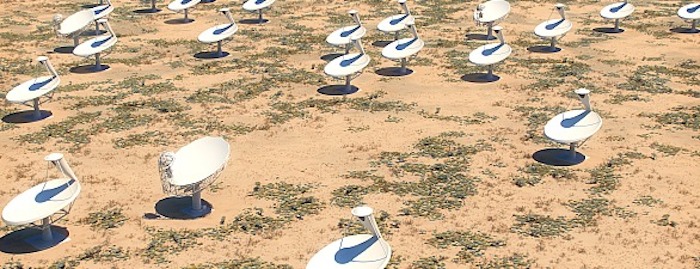.

SKA Südafrika
-
With a billion people still in poverty, could rocket science be just what development needs?
In October 2015, African science and education ministers adopted the continent’s first space policy. [1] The accompanying strategy is due to be ratified by heads of state at the African Union summit later this month.
The hope among the ministers is that this strategy will prove as successful as India’s space commitment: in September 2014, India became the first country in the world to put a spacecraft, the Mangalyaan orbiter, into Martian orbit at the first attempt.
India’s progress in space exploration has opened a new front in public campaigns for overseas development assistance, with donors being forced to justify the need when a country can afford spacecrafts. Africa’s space strategy will further stretch the capabilities of public campaigners as the African Union sets out to prove that space science is no longer the preserve of high-income countries.
“These commitments to space science are suggestive of states that want advice and technical know-how, not money or handouts.”
Nick Ishmael Perkins, SciDev.Net
The African space strategy supports building technological capacity in states not nearly in the same income bracket as India or China. This means that development charities working in Africa will need to argue that not only can development lead to aerospace capability, which is how most people think anyway, but also that space technology can make a contribution to development. This, in turn, suggests that development agencies need to start rehearsing the benefits of space technology for development outcomes.
Ultimately this means a new frontier of collaboration between science, tech entrepreneurs and development practitioners — and NGOs may soon be expected to offer project ideas that join up national space programmes with more traditional programmes. Take health and sanitation: NGOs running programmes on this can expect to be asked to demonstrate space-related expertise, for instance in using satellite data to predict water shortages and how to improve access to water.
But there is also a deeper, more political issue here that questions the very notion of what constitutes a development project. These commitments to space science are suggestive of states that want advice and technical know-how, not money or handouts. This would make space-related development about providing eye-level partnerships instead of traditional aid.
Bridging the aid rift
This has implications for Africa’s science and development policy.
The African Union has a long-term plan — Agenda 2063 — which it sees as a regional counterpart to the UN’s Sustainable Development Goals. Agenda 2063 is meant to funnel investment and aid for African countries into issues governments consider most pressing.
When it comes to science and technology, the international development community may find itself in an awkward space, requiring particular sensitivity to sidestep accusations of neocolonial paternalism. In the traditional world of development, primary schools are prioritised before universities, and irrigation before mobile phone apps. As a result, there is often a rift between what Africans consider a useful target for support and what international donors and investors want to do. This is changing, but the space strategy will lend some urgency to the need to bridge the rift.
“Space policy highlights the importance of addressing inequalities inside a country through different programmes and different types of support.”
Nick Ishmael Perkins, SciDev.Net
By extension, it forces us to recognise that traditional measurements of a country’s development, like aggregated income levels, are becoming less useful. Space policy highlights the importance of addressing inequalities inside a country through different programmes and different types of support.
So a middle-income country such as India can afford to launch a spacecraft and still have valid development needs — and these can be supported by the innovation and industrial growth created through a space programme.
Some might counter, with good reason, that space programmes are expensive. They require large structural overhauls in finance, research and government regulation, and they depend on intricate political negotiations and commitments that may take so long to bear fruit that they become irrelevant to immediate development needs.
The early winners here are likely to be savvy NGOs that commit to the development potential of rockets, and nimble aerospace executives who see a new kind of market and a way into the kind of global partnerships touted by the Sustainable Development Goals.
You might also like
Africa Analysis: The continent’s bold space policy
Is Asian space science drive harming development?
Africa Analysis: Does Africa need to be in space?
Africa considers a continent-wide space agency
Space technology 'invaluable for development'
But with a billion people still stuck in poverty despite continuous global development efforts, it’s time to think outside the box. Seeing space programmes as part of development could force international organisations and NGOs to get to grips with new approaches to poverty reduction. Far from being awkward, this could be extremely useful for all because the challenge to conventional wisdom could deliver results in less time than it takes to build a rocket.
Quelle: SciDev.Net
4659 Views
